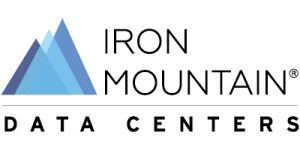Emerging Data Center Markets in 2025: Opportunities in Southeast Asia and Africa
Global Shift: New Frontiers in the Digital Infrastructure BoomIn 2025, the global data center market is no longer confined to traditional hubs like Northern Virginia, London, Frankfurt, or Singapore. A new generation of markets—particularly in Southeast Asia and Africa—is rising to meet explosive demand for digital infrastructure, driven by population growth, rapid digitization, AI adoption, and sovereign data policies.What was once considered a “frontier” for data center investment is now viewed as the next strategic battleground. Operators, hyperscalers, and private equity firms are racing to secure land, power, permits, and partners across cities like Jakarta, Nairobi, Lagos, Kuala Lumpur, Accra, and Bangkok.These regions represent not just untapped opportunity—but a necessary evolution of the global infrastructure map. The future of data centers is global, and it's being built from the edge in.Why Southeast Asia and Africa Now?Several macro trends have converged to create the perfect conditions for growth in these regions:1. Internet and Mobile AdoptionBoth Southeast Asia and Africa are experiencing rapid increases in internet penetration, with mobile-first users driving demand for cloud services, content delivery, and fintech. More users means more data—and more infrastructure is required to process and store it locally.2. Regulatory Push for Data SovereigntyGovernments across these regions are passing data localization laws, requiring citizen data to be processed and stored within national borders. This has created urgent demand for in-country capacity, especially in nations with strong e-commerce, banking, and telecom sectors.3. Undersea Cable Landings and ConnectivityDozens of new undersea cables—including 2Africa, Apricot, Echo, and Medusa—are landing in African and ASEAN nations. These landings bring global fiber routes directly to cities that previously relied on limited backhaul. The result is lower latency, better bandwidth, and increased interest from hyperscalers.4. Urbanization and Middle-Class GrowthAs cities like Jakarta, Nairobi, Accra, and Ho Chi Minh City grow rapidly, demand for AI services, digital commerce, ride sharing, streaming, and real-time apps is increasing. Local compute and caching are required to avoid lag and minimize cloud egress fees.5. Cost and Risk Diversification for OperatorsGlobal operators and cloud giants are seeking to diversify from saturated Tier 1 markets where land, power, and permits are expensive and constrained. Emerging markets offer cheaper power, faster approval cycles, and first-mover advantages.Southeast Asia: Rising Stars in the ASEAN RegionJakarta, IndonesiaIndonesia has over 270 million people and a booming digital economy.In 2025, Jakarta is one of the fastest-growing colocation markets globally.Local players like Biznet, DCI Indonesia, and NeuCentrIX are expanding aggressively.Global firms including ST Telemedia, Princeton Digital Group, and Equinix have announced new facilities.Data localization rules, fintech apps like Gojek and Tokopedia, and AI expansion are driving demand.Kuala Lumpur, MalaysiaStrategically positioned between Singapore and Bangkok, Malaysia offers cheaper land and electricity.Malaysia Digital Economy Corporation (MDEC) supports data center expansion with incentives and green mandates.Microsoft, AWS, and Google have announced new cloud regions here.Bangkok, ThailandWith a population over 70 million, Thailand is a fast-growing digital market.Enterprises are demanding colocation and hybrid cloud options as regulatory frameworks mature.Proximity to Vietnam, Cambodia, and Laos makes it a regional hub.Manila, PhilippinesA young, English-speaking population and a strong BPO industry make the Philippines attractive for edge compute.Data center demand is tied to e-commerce, AI customer service, and gaming.Africa: The Next Frontier of InfrastructureNairobi, KenyaOften referred to as “Silicon Savannah,” Nairobi is a regional leader in fintech, mobile money, and innovation.Firms like IXAfrica, Africa Data Centres, and PAIX are investing heavily.Nairobi is a landing point for 2Africa and has direct connectivity to Europe and Asia.Lagos, NigeriaWith over 20 million residents, Lagos is the commercial nerve center of West Africa.Lagos is now connected to high-capacity submarine cables, including Equiano and 2Africa.Hyperscalers are partnering with local ISPs and real estate developers to co-build capacity.Accra, GhanaA politically stable, English-speaking market with strong demand for local hosting and B2B SaaS.Recent cloud policies mandate data sovereignty, prompting a wave of small and medium facility builds.Cape Town Johannesburg, South AfricaLong considered mature markets, SA continues to lead with hyperscaler regions from AWS, Azure, and Google.New growth is coming from edge nodes and AI/ML infrastructure for mining, healthcare, and agriculture.Hyperscaler Strategies in Emerging MarketsAmazon, Microsoft, Google, and Oracle are deploying a mix of tactics:Colocation partnerships with regional playersJoint ventures with sovereign wealth funds and telcosPop-up data centers in modular containersAI inference nodes embedded in 5G networksLocal partnerships for power sourcing and land acquisitionThese companies are building for compliance, latency, and redundancy—all critical as usage grows and AI services proliferate.Challenges and Mitigation StrategiesDespite the opportunity, there are hurdles:Power grid reliability: Being addressed with on-site renewables and batteriesSkilled labor shortages: Operators are investing in local training academiesPolitical and regulatory risk: Diversification across multiple countries reduces exposureLong supply chains: Modular designs and local assembly are reducing deployment timesResilience is being built into every layer—from redundant fiber paths to multi-region architecture.Investment Activity and MAPrivate equity and infrastructure funds are pouring into these markets:DigitalBridge, Actis, and Africa50 are funding local buildsEdgeConneX, Vantage, and Stack Infrastructure are entering ASEAN through acquisitionsSovereign funds are co-investing in sovereign cloud infrastructure as part of national AI and digitization strategiesAnalysts forecast over $100 billion in investment in emerging market data centers by 2030—a figure once unimaginable.The Future: Regional Hubs as Global AnchorsBy 2030, today’s emerging markets will be:Hosting national LLMs and sovereign AI infrastructurePowering regional gaming, video, and fintech platformsOffering cross-border connectivity and multicloud nodesDelivering edge inference for industrial automation and telemedicineThis isn’t just about catching up—it’s about leapfrogging legacy infrastructure models and building with sustainability, modularity, and AI-readiness from day one.
























